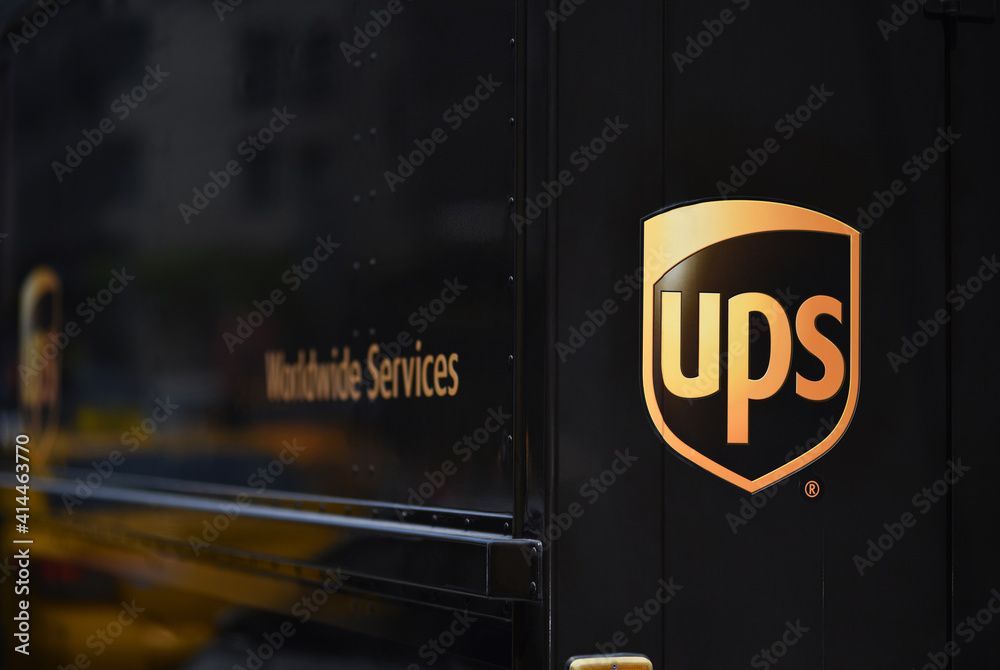Understanding the Importance of UPS and FedEx Auditing
In today’s fast-paced world, shipping and logistics play a crucial role in the success of businesses, particularly those involved in e-commerce and retail. Major carriers like UPS and FedEx provide reliable shipping solutions, but the costs of these services can quickly add up. Shipping expenses often represent a significant portion of operational costs for businesses. Therefore, controlling and optimizing these costs is critical. This is where UPS and FedEx auditing come into play. Auditing shipping invoices from major carriers is a vital process that can result in substantial savings for businesses, uncover billing errors, and ensure carriers meet the expected level of service.
This comprehensive guide will explore what UPS and FedEx auditing entails, why it is important, how the process works, and how businesses can benefit from regular audits.
What Is UPS and FedEx Auditing?
UPS and FedEx auditing refers to the process of reviewing and analyzing shipping invoices for errors, overcharges, and service failures. Shipping invoices are often complex, containing various charges such as fuel surcharges, residential delivery fees, incorrect package weights, and others. With the sheer volume of shipments many companies handle daily, small errors can go unnoticed and accumulate over time, resulting in significant unnecessary costs.
Auditing involves a thorough examination of these invoices to ensure that the charges align with the services rendered. Auditors look for discrepancies between what was billed and what should have been billed. If errors are found, the auditing company or in-house auditing team can file claims on behalf of the business to secure refunds for the overcharges.
Common Shipping Errors Uncovered in Audits
Here are some common issues that can be uncovered during a UPS and FedEx audit:
- Late Delivery Refunds: Both UPS and FedEx offer guarantees for on-time delivery, meaning if a package is not delivered within the promised time frame, businesses are eligible for a refund. However, most businesses do not monitor their shipments closely enough to identify late deliveries.
- Incorrect Weight Charges: Packages are often billed based on weight, and incorrect weight entries can lead to overcharges. Even small discrepancies in recorded weight can add up over time.
- Duplicate Charges: Errors in invoicing systems can lead to duplicate charges for a single shipment. Without auditing, these charges may go unnoticed, unnecessarily inflating shipping costs.
- Fuel Surcharge Errors: Fuel surcharges fluctuate based on market conditions, but errors in applying the correct surcharge can happen. Regular audits help ensure that businesses are only paying the correct amount.
- Address Correction Fees: Carriers may apply additional fees if they need to correct an address. However, sometimes these charges are incorrectly applied, even when the address was accurate.
- Residential Delivery Fees: Delivering to residential addresses typically incurs higher charges than delivering to commercial addresses. Auditing can help catch any misapplied residential delivery fees.
Why UPS and FedEx Auditing Is Important
Shipping costs can significantly impact a company’s bottom line, and overcharges can hurt profitability. Conducting regular audits allows businesses to identify and correct these billing errors, ensuring they only pay for the services they receive. Beyond the immediate cost savings, auditing also provides several long-term benefits for companies relying on UPS and FedEx for their shipping needs.
1. Recovering Overcharges
One of the most immediate benefits of UPS and FedEx auditing is the recovery of overcharges. The carriers themselves are not perfect, and errors in billing are common, whether due to system glitches, human error, or complex pricing structures. Overcharges can occur in many forms, from duplicate billing to inaccurate weight charges. With consistent auditing, businesses can file claims for refunds on incorrect charges, recovering money that otherwise would have been lost.
2. Improving Service Level Performance
Both UPS and FedEx offer money-back guarantees for late deliveries. However, it is up to the shipper to identify and file claims for refunds when a package is delivered late. Auditing helps businesses track delivery times and ensure carriers meet their performance guarantees. If a package arrives late, even by just a few minutes, companies are eligible for a full refund of the shipping costs. Tracking these deliveries ensures that businesses only pay for services that meet the promised level of performance.
3. Optimizing Shipping Costs
UPS and FedEx auditing provides valuable insights into shipping patterns and costs. By analyzing shipping invoices and understanding where costs are highest, businesses can make informed decisions to optimize their shipping processes. For example, auditing can reveal if certain shipping methods consistently incur additional charges, prompting a shift to more cost-effective options. This kind of data-driven decision-making helps companies control shipping expenses and allocate resources more efficiently.
4. Boosting Profit Margins
Recovering overcharges and optimizing shipping processes leads to direct savings, which can significantly improve profit margins. When shipping costs are reduced, the business can reinvest these savings into other areas, such as marketing, product development, or customer service, leading to overall growth and sustainability.
5. Gaining Leverage in Carrier Negotiations
A detailed audit of UPS and FedEx invoices gives businesses a clear understanding of their shipping patterns, the level of service they receive, and areas where they incur unnecessary costs. This information is valuable when negotiating contracts with carriers. Businesses that have insights into their shipping data are in a stronger position to negotiate better rates and terms, which can lead to further cost reductions.
6. Enhancing Accountability
Shipping auditing promotes accountability by holding carriers responsible for delivering on their promises. Whether it’s ensuring packages arrive on time or applying accurate fees, the auditing process helps identify areas where carriers may be falling short. This ensures that businesses are not paying for subpar service and encourages carriers to uphold their standards.
How the Auditing Process Works
UPS and FedEx auditing can be performed in-house or outsourced to specialized auditing companies. Regardless of the approach, the auditing process typically follows these steps:
- Data Collection:
- The first step in the auditing process is collecting all relevant shipping data. This includes invoices, tracking information, delivery details, and any other documentation related to shipments. Modern auditing software can automate the collection and organization of this data.
- Invoice Review:
- Once the data is collected, auditors begin reviewing the shipping invoices in detail. They look for errors such as incorrect charges, duplicate fees, late deliveries, and other discrepancies. In some cases, automated systems can scan invoices for errors, while in other cases, auditors may manually review the information.
- Error Identification:
- During the review process, auditors flag any errors they find. These can include overcharges, service failures, or billing discrepancies. For example, if a package was marked as delivered on time but actually arrived late, it will be flagged for a refund claim.
- Filing Claims:
- Once errors are identified, the next step is filing claims with UPS or FedEx for refunds. Most carriers have specific windows of time within which claims must be submitted, so it’s important to act promptly. The auditing company or team will handle the claim submission process on behalf of the business.
- Refund Processing:
- Once a claim is submitted, UPS or FedEx will review it and, if approved, issue a refund for the overcharges. These refunds can be applied directly to future shipping invoices or returned as credits to the business.
- Ongoing Monitoring:
- Auditing is not a one-time process. To continue benefiting from savings and service improvements, businesses should conduct ongoing audits of their shipping invoices. This ensures that any future errors are caught early and corrected.
Choosing the Right Auditing Solution
There are two main approaches to UPS and FedEx auditing: in-house auditing or outsourcing to a professional auditing company. Each has its own advantages, and the right choice will depend on a business’s specific needs and resources.
1. In-House Auditing:
Larger companies with dedicated shipping or logistics teams may choose to perform audits in-house. This approach gives the company complete control over the auditing process and ensures that internal staff handle all data. However, in-house auditing requires time and expertise. It can be challenging to keep up with the volume of invoices and the complexity of shipping rates, making it difficult to catch all errors.
2. Outsourcing to an Auditing Company:
Outsourcing the auditing process to a specialized company is often the most efficient and cost-effective option, especially for smaller or mid-sized businesses. Professional auditing companies have the tools, expertise, and technology needed to review large volumes of shipping data quickly and accurately. These companies typically work on a contingency basis, meaning they only charge a percentage of the refunds they recover, making it a low-risk investment. Mindful Logistics offers a free rate analysis to see how they can help you. Learn more about how UPS Audit can save your Business money Here.
Conclusion
In today’s competitive business landscape, controlling shipping costs is essential for maintaining profitability. UPS and FedEx auditing helps businesses ensure they are not overpaying for shipping services, recover overcharges, and optimize their logistics operations. By regularly auditing shipping invoices, companies can uncover hidden savings, improve service levels, and gain valuable insights to inform future shipping decisions.
Whether conducted in-house or outsourced to a professional auditing company, the benefits of UPS and FedEx auditing are clear: lower shipping costs, improved accountability, and a healthier bottom line. For businesses looking to streamline their operations and improve profitability, auditing is a crucial tool in achieving long-term success in logistics management.
Ready to work with Mindful Logtistics?
Let's connect! We’re here to help.
Send us a message and we’ll be in touch.
Or give us a call today at (919) 368-6169
Agency Contact Form
More Info on Shipping and Saving




